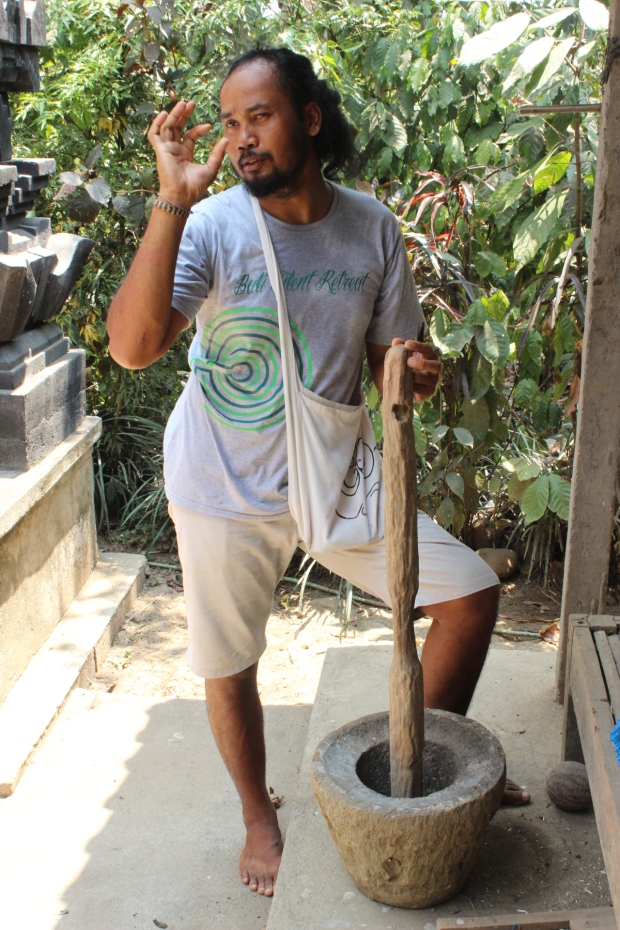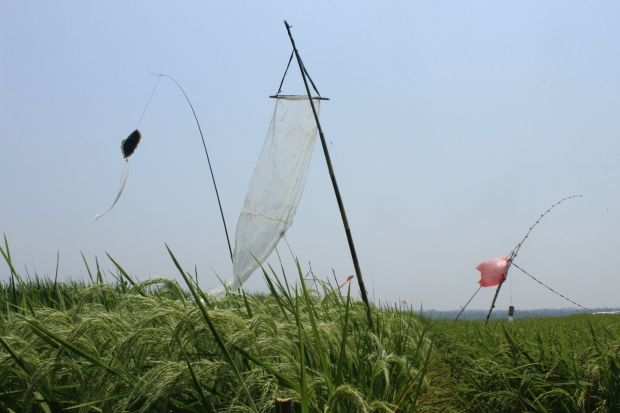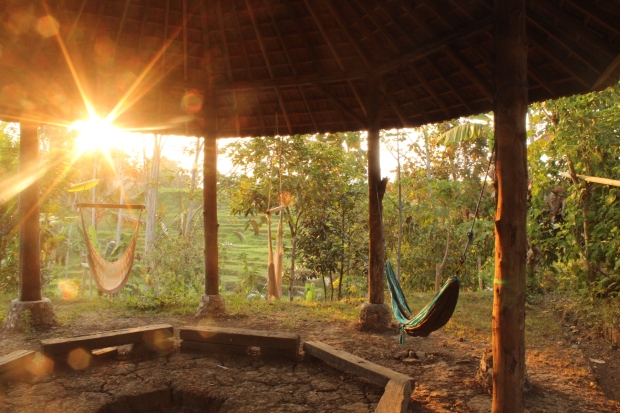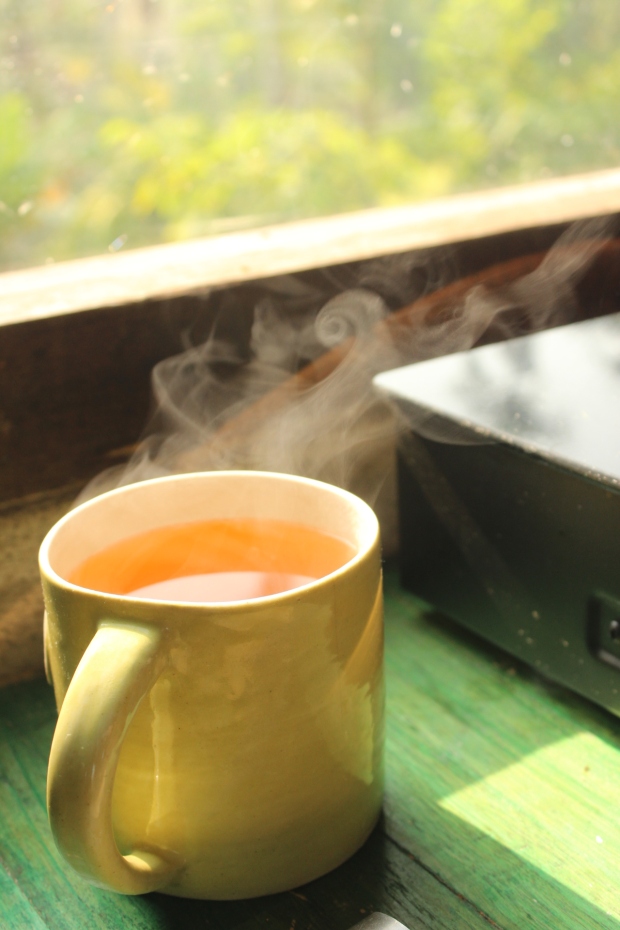Towards the end of October this year I had the privilege of spending seven days at the Bali Silent Retreat (BSR) near Ubud, Bali in Indonesia. While there, I expected to find a zen environment inhabited by yogis and surrounded by the lush, enveloping jungles of the South Pacific. What I found was indeed these precious things, but I also discovered something much more profound. What I found was not just a place, but a philosophy; a philosophy that I believe could very well save this planet and its people if we continue unaltered on our current course of destruction. Throughout my travels, I have always sought out places and experiences that offer a lived counterpoint to a removed preconception. Whether it be a given stereotype about a people, place or culture or a religious framework with which I am unfamiliar, my ultimate goal is always unbiased learning and understanding. And the lessons that I came away with from BSR were nothing short of miraculous.
So miraculous, in fact, that I would be remiss if I did not take the opportunity to share this philosophy with as many others as possible; a message delivered with the hope that a similar seed may be planted and sowed among other communities around the world.
The sustainability principles of BSR are centered squarely upon its cuisine, which occupies a category all its own. At BSR, the notion of nourishment (body, soul) comes before anything else, and no effort or expense is spared in selecting the foods that are both nourishing for our bodies as well as nourishing for the earth. In this context, food is revered. It is a blank slate, welcoming passion, creativity and adherence. Just the thought of throwing something in a microwave and not giving it a second thought felt like an insult. Fortunately, these sentiments are beginning to take hold in the western world, but what I found in Bali is that they are already very deeply rooted and acted upon every day. The fare on offer at BSR overwhelms your sense of reality from the moment that you first witness it placed lovingly on the central bamboo table, interwoven like the brightly-colored jewels of a precious necklace. And then you register the smells; fragrant, fresh, soothing, spicy, all-consuming. By the time you’ve actually tasted the food the experience is nearly complete, although nothing can compare with the taste itself which brings to mind that of sunlight and wind; dare I say of the Garden of Eden itself (a term which has in fact been used to describe the center’s gardens in the past). A typical lunch menu is as follows:
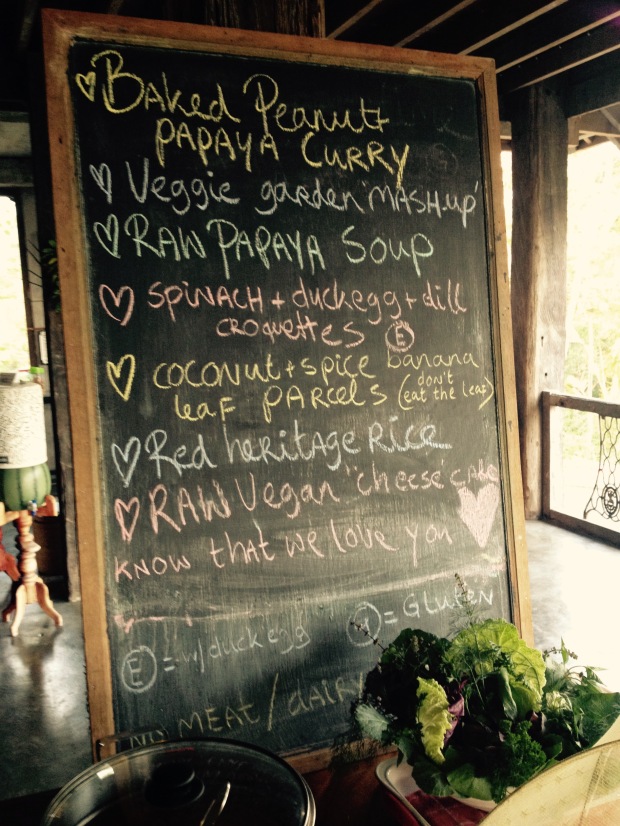
- Baked peanut papaya curry
- Veggie garden ‘mash-up’
- Raw papaya soup
- Spinach, duck egg and dill croquettes
- Coconut and spice banana leaf parcels
- Red heritage rice
- Raw vegan cheesecake
Followed by the words ‘know that we love you – the kitchen angels’.
All of the food is grown organically on four hectares directly on the property of the retreat. Vibrant in every possible way – color, taste, texture, content – you cannot help but smile as you take it in. Close to nothing is more than one or two days from the vine or the earth nor has it ever been made to endure the long and torturous hours of a delivery truck. It is strangely, but accurately, what can only be described as ‘happy food’ – food that still possesses a soul and a heartbeat; food which will in turn make you feel more acutely alive in every way.
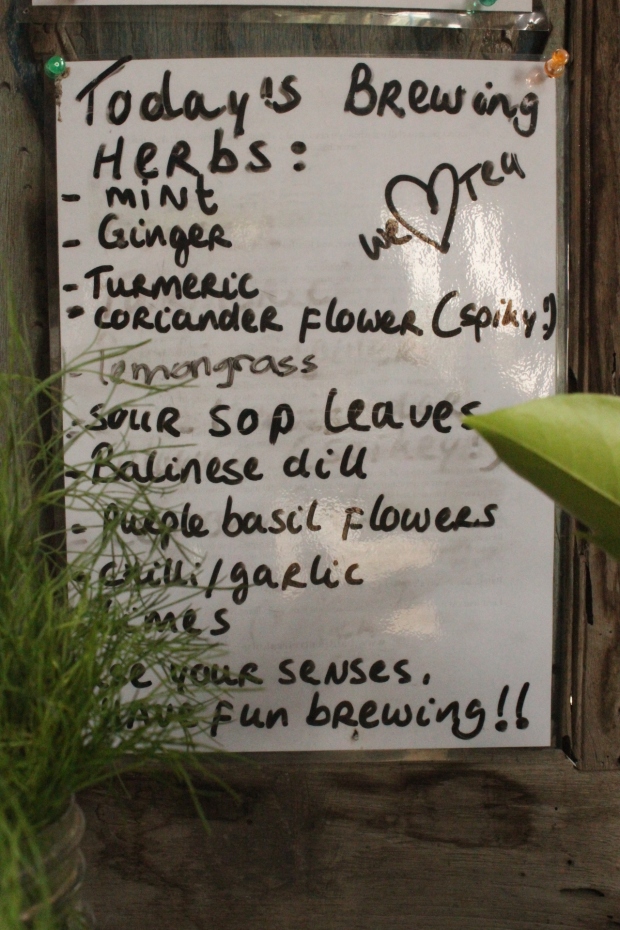
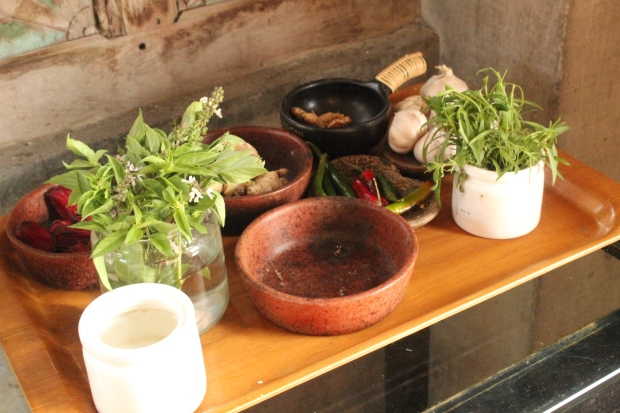
The Head Chef at Bali Silent Retreat is Simon Jongenotter and he has been at the helm since 2012. Here you can read further on how Simon would describe a typical day in the kitchen at BSR to get a better sense of the magic that effortlessly and endlessly unfolds:
http://newearthcooking.com/about-2/bali-silent-retreat/
Simon’s culinary initiative, New Earth Cooking, is a transformative philosophy around the way we approach and think about the food we buy, prepare and consume on a daily basis. He advises that we consider the ‘Five P’s’ in our everyday consciousness when it comes to consuming food products, but I would argue that these could be applied to consuming any product at all. They are as follows:
- Place (where does it come from?)
- Product (what is it made of?)
- Price (what is the true value?)
- People (who does it impact?)
- Planet (how does it affect our planet?)
I believe it is time that we demand this kind of information for everything that we buy; that it should be placed on consumer products like a nutrition label. Think about the difference that this change would make to the global supply chain, especially if the consumer market began demanding locally-made products at a fair price that did not have adverse effects on other people or the planet. Just think about it.
Furthermore, we must consider not only what is healthy for our own bodies, but also what is most healthy for the planet. Sure goji berries are an amazing and enriching super food, but where did they come from in relation to where you are and how much money and carbon emissions were expended to deliver them to you? Are there any other alternatives to consider?
Simon is not concerned with nutrition as an everyday, mundane necessity of life required to make it through to the next day. Instead he asks, “what will it take to allow all seven billion inhabitants of the planet to thrive?” Not just survive, but thrive. He urges us to question the way we that we feed ourselves on a daily basis, and he acknowledges that this is easier said than done. He acknowledges the demands of busy lifestyles and he appreciates the high prices of organic foods. But at the same time, he doesn’t accept that as an excuse to walk away from the issues that we all face as a human race. Even if you start small, just by asking ‘Can I buy a tomato that’s grown locally versus one that was shipped across the country?’, ‘Can I choose to invest in my nutrition and health instead of investing in other areas of my life?’, ‘Can I choose to support the local economy which will in turn raise me up alongside it?’ Not only do we have to take a long-term view, we have to take a collective view. In order for us to thrive, we must come together and demand better together. Consumers drive the markets. And the sooner we become enlightened to the realization that we have a say not only in terms of what food is available to us but also in terms of where it comes from and who produces it, the sooner real change can start to occur the likes of which I was able to experience in Bali.
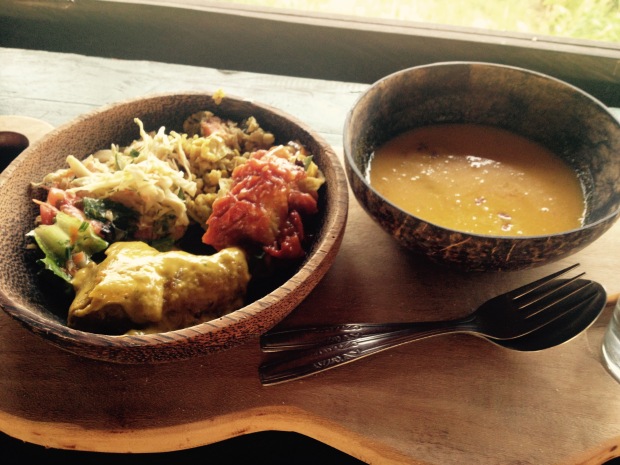
From the one week that I spent at BSR, I came to truly internalize these philosophies and, with more time, would have explored them much further. I appreciate that this post may sound a bit cliche given that this message is being put forward from so many different corners and most of all I don’t want bore you; rather, I simply want to further this philosophy of truth and offer my own thoughts and reflections from a personal perspective.
In closing, Simon quotes Albert Einstein in that “we cannot solve today’s problems at the same level of thinking that we created them”. Solutions require a new approach. He implores that we must be willing to recognize the madness within ourselves, engendered by the world we live in, and accept it as an independent observer who is willing to move beyond ego, fear and possession towards compassion and love. For me, his words ring true because I was able to experience the results of this way of thinking and living first hand. And trust me, the results are simply divine.
I will leave you with this:
“Wherever there is no fear love will just flourish, and wherever there is love, there is really good food to be had as well.” – Simon Jongenotter
To learn more about Bali Silent Retreat: http://www.balisilentretreat.com/
